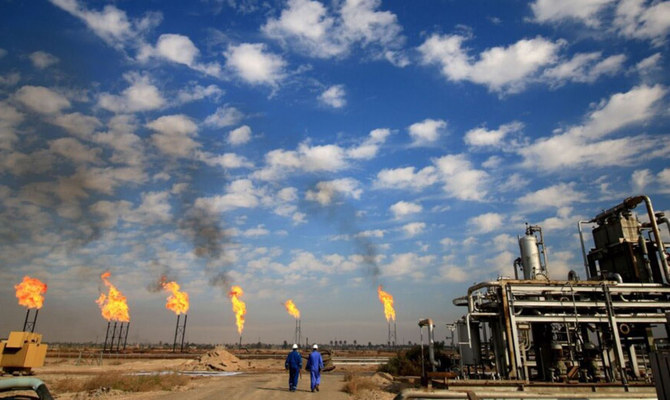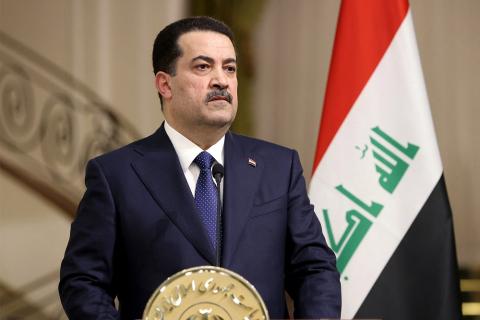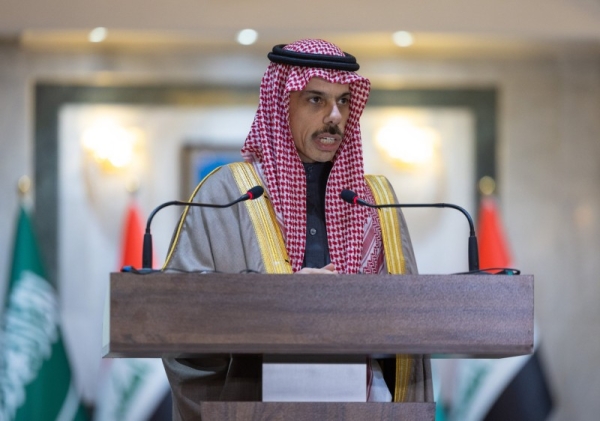
The situation is heating up in Baghdad with less than two weeks to go until the Iraqi parliamentary elections, which will also decide who will be the nation’s prime minister for the next four years.
These will be the fourth elections since the fall of the regime of Saddam Hussein, but they have been described by many as distorted democracy because of the influence of religious actors, foreign interference and political corruption. However, it is relatively much better than other democracies in the Arab region.
Although many had predicted that the parliamentary system would collapse after the withdrawal of the United States, who engineered it, this is the second round of post-American elections. The US built the political system in Iraq to be federal parliamentarian, not presidential, in order to contain the spectrum of differences in Iraq, with its various ethnicities, languages and religious beliefs, and avoid autocracy, allocating one seat in Parliament for every 100,000 citizens.
For one candidate to be prime minister, they would need 165 votes from the 329 MPs, which is impossible to achieve without coalitions due to the nation’s political pluralism. Of course, Baghdad Province is the most important by far, as it enjoys 69 seats in Parliament.
Iraq has been home to a long political history alongside the greatest civilizations, competing with the Romans, the Greeks and Pharaonic Egyptians. They are the ones who invented the first written language and drafted the first laws. Unfortunately, civilization cannot be inherited, not even the history of the recent past. Who could have imagined, when Iraq was a monarchy, that Iraqis would participate in 10 rounds of legislative elections in the first half of the 20th century?
In the 1920s, Baghdad was a prosperous city; full of life, modern and quasi-European. After defeating the Ottomans, the British established two chambers: A Parliament elected from the citizens and an appointed Senate. The British established the modern Iraq within its actual borders and chose a political system similar to theirs by instituting a monarchy in 1921. Eleven years later, Iraq gained its independence, and the prosperity of the Iraqi monarchy continued until 1958, when the region was stormed by military coups that brought nothing but destruction and instability.
Iraq has always been a target for invaders and a passage for invading forces, as well as being home to local civilizations such as the Sumerians and Babylonians. The Romans attacked it from the west, the Sasanian Persians from the east, the Arab Christian Lakhmids from the north, the Mongolians from the outskirts of China, and the Arabs of the Peninsula from the south, as well as the Turks (Ottomans) and the British.
Iraqis themselves are a mixture of many nations, which is why they need this federal parliamentary system, within a delicate balance, in order to be able to preserve Iraq. It isn’t strange to see the relentless efforts of Ali Khamenei’s Iran to occupy most of its neighbor, thinking that this would enhance its influence and bring durability to its theocratic regime, even though it is only bringing down the temple on its own head.
The upcoming Iraq elections are important to stabilize the country"s political system, but this won’t be enough to bring prosperity.
Abdulrahman Al-Rashed
All those who attempted to ride or tame this Iraqi horse where thrown off it, including Iraqis like Saddam Hussein, the megalomaniac who thought that he could impose his influence on Iran and the Arab countries of the Gulf. That is why the current American administration has repeated its warnings to Tehran against any attempt to take control of Iraq as a strategic asset.
What happened at the previous Iraqi election was not the complete story, as the Iraqi forces and the Americans soon decided to get rid of Nouri Al-Maliki, the prime minister who had paved the way for his triumph by any means. On a dark night, he was isolated, in a pseudo coup, and his loyal Republican Guards were controlled. Only one courageous man from his Dawa Party accepted his seat, Haider Abadi. After that, other candidates have fled in fear of Al-Maliki’s revenge. He threatened his opponents by bringing them to trial over corruption charges (among others) in order to regain a mandate as prime minister for a third term, and maybe for life.
The upcoming elections are important to stabilize the Iraqi political system, but this won’t be enough to bring prosperity to a country that needs to focus on development, reducing militarization, and curbing the influence of Khamenei’s regime.
Abdulrahman Al-Rashed is a veteran columnist. He is the former general manager of Al Arabiya news channel, and former editor-in-chief of Asharq Al-Awsat. Twitter: @aalrashed












